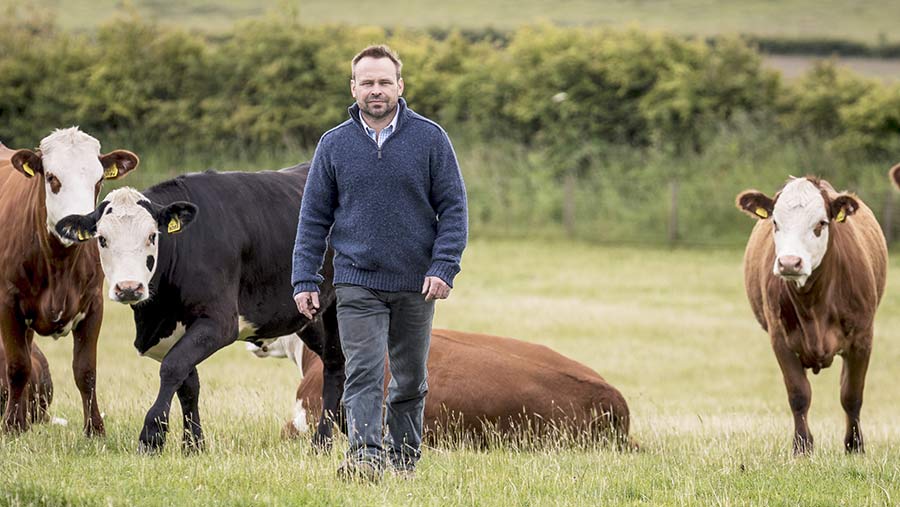Farmer Focus: Renewables mean we are now self sufficient
 © Jim Varney
© Jim Varney The fat cattle are due to come in shortly. Grass quality and quantity is starting to decline and we need the remaining grass for the sheep.
They will be given a white drench for worms and adult fluke and their backs will be clipped out. Their finishing mix will be red clover silage and wholecrop.
Next week, we will scan all of the cows and heifers. Calves will receive a white wormer and their first pneumonia vaccine.
See also: Read more from our livestock Farmer Focus writers
Lambs being picked out
Fat lambs are going as and when ready. Short keep lambs are on the brassicas.
Medium- and long-term keep are being rotationally grazed on red/white clover grass leys. Mixed aged ewes are all set stocked ready for tupping and awaiting a fluke dose (too early yet), and their tails being clipped out.
Hens are constant effort
The hens are doing well. It has been a steep learning curve but we are enjoying the challenge of a new enterprise.
We are constantly trying to keep their environment right and maintain good bird health and feather cover while keeping productivity up.
We have fitted a solar array onto the south-facing roof of the egg production unit.
Self sufficient in electricity
Theoretically, we can now produce 40kW of renewable electricity on the farm and should now produce all of our own electricity requirements from the solar and our upgraded 20kW wind turbine with some spare to export.
The panels are a good fit as most of the electricity use is during daylight hours.
We hosted a farm visit last month from some final year agricultural students from Aberystwyth university.
They had been on a week-long tour of the North East and visited a number of different farms and farming systems across the region.
It’s always a pleasure to have a good group who ask great questions and are interested in what we are doing and why we are doing it. Good luck to them in their final year.
Simon Bainbridge runs a 650ha upland organic farm with 160 suckler cows, 1,500 breeding ewes and 12,000 organic laying hens with his wife, Claire and his parents in Northumberland Healthy, maternal livestock and quality feed is a priority.
